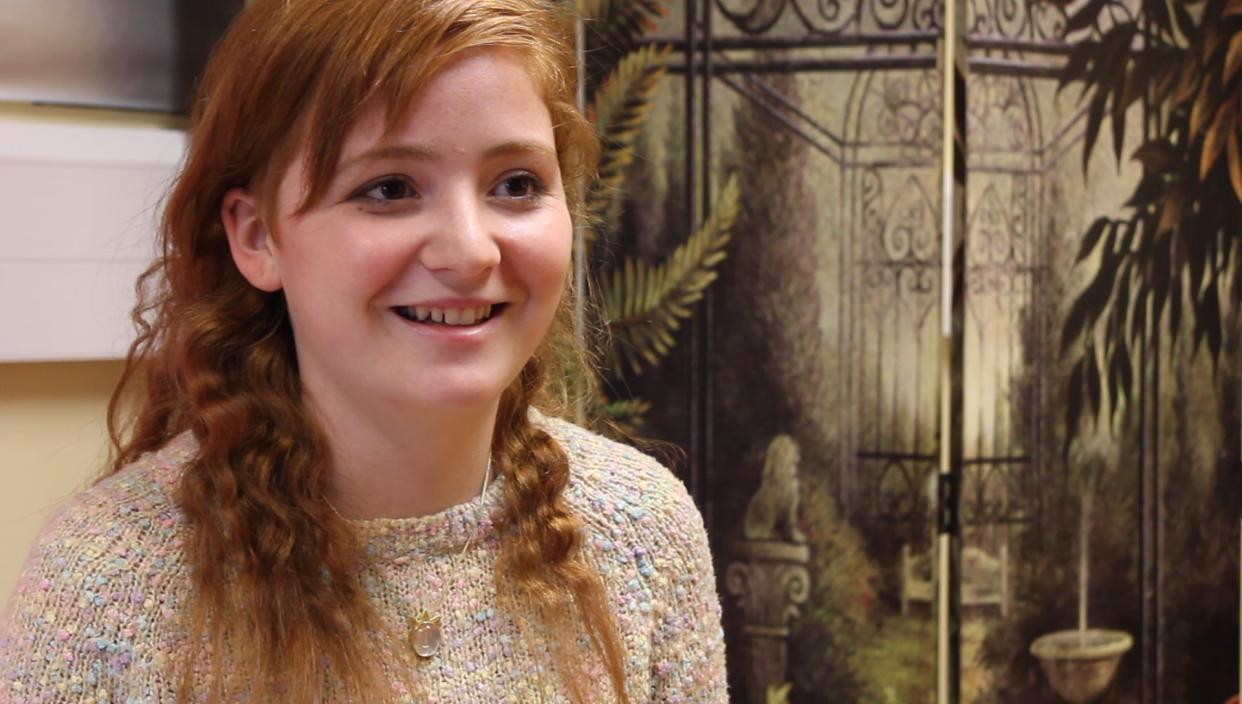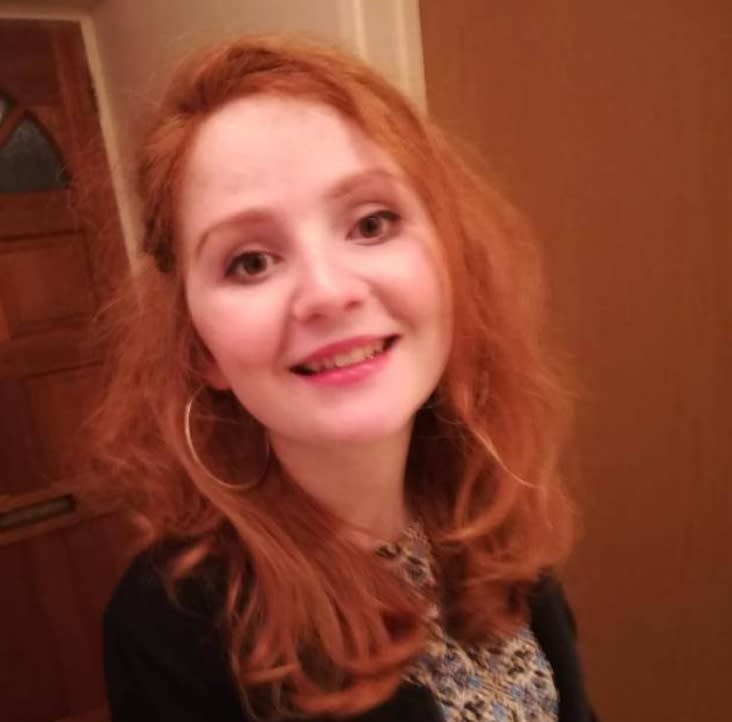Woman reveals she was diagnosed with a brain tumour at just 19 after a trip to Vision Express

A 19-year-old girl was diagnosed with a brain tumour after a routine trip to the opticians.
Elena began battling severe headaches while working as an au pair in Denmark in 2015.
With her GP dismissing it as nothing to worry about, she returned to her home in Bristol in August.
READ MORE: Brain tumour patient gains 10 stone and three shoe sizes after treatment
Elena, who normally wears glasses, went to her local Vision Express for a check-up, only for the ophthalmologist to notice she had lost 50% of her peripheral vision.
After being referred to hospital for a scan, the teenager was told she had a grade one astrocytoma in September 2015.
Elena was forced to endure surgery and chemotherapy to treat the tumour, however, doctors were unable to remove it completely.
With the growth shrunk and under control, the now 23-year-old has been left with severe short term memory loss, which leaves her dependent on her mother, “like a 12-year-old”.

Elena, who declined to give her surname, developed severe headaches and fatigue while working overseas. She never imagined it could be a sign something was seriously wrong.
Speaking this International Brain Tumour Awareness Week, Elena told Yahoo UK: “I thought it was because I was looking after kids, living in a new country, learning a new language.
“I thought it was normal to be tired.”
After putting up with the symptoms for three months, her mother Hellevi encouraged her to see a GP.
“I was skyping with my mum and saying how much I was sleeping,” Elena said. “She said ‘it’s not normal to sleep through alarms’.”
After being told it was nothing to worry about, Elena returned home, where she eagerly awaited going to the University of Exeter to study psychology.
But during a check-up at Vision Express, a medic noticed her eyesight had taken a dramatic turn for the worse.
“I only went because I wear glasses so I go every few months,” Elena said. “I was not expecting to hear this.”
Elena, who works with the charity Brain Tumour Support, was referred for a scan at Southmead Hospital around a week later.
Putting it to the back of her mind, she was working a summer job at a dance school when she got the dreaded call.
“I was told to come in immediately,” she said. “They said I needed another scan.
“I was on my own. I felt completely, completely sick.”
Elena had her second scan in September, which confirmed she had an astrocytoma.
Astrocytomas are the most common type of brain cancer, according to Public Health England (PHE).
They make up more than 80% of brain tumours, with three quarters being aggressive, PHE statistics show.
Elena went under the knife in September 2015 at Southmead to remove as much of the growth as possible. Doctors were forced, however, to leave some of the malignant tissue behind due to the risk of brain damage.
A year later, Elena had further surgery to remove more of the growth and started her first of four rounds of chemotherapy. Unable to cope with the vomiting side effect, she later came off the treatment.
The teenager also flew to Switzerland, where she endured nine weeks of proton beam therapy.
This is an “external type of radiotherapy”, according to Macmillan. Its precision means it is often used to treat cancers close to “important structures”, like the spine.
It has only been available in the UK since late last year. The NHS covered Elena’s treatment in Switzerland.
Despite all she has endured, Elena still has a tumour in her brain.
Now under control, she no longer requires treatment but goes to hospital every six months for a check up.
The ordeal has also hugely affected her wellbeing, with Elena visiting a counsellor on and off for the past four years.
READ MORE: Death of 21-year-old from brain tumour ‘not fair’, father says
“Being diagnosed with something so serious it really puts you in some really, really dark places,” she said.
“It has also hugely affected my confidence. I feel like I’ve returned to being a 12-year-old or even younger in some aspects on my life.
“Watching my friends be adults and do their own thing I find really hard.
“A lot of my friends have moved to different cities now and are working.”
Although keen to carry on as normal, Elena is forced to live with her mother while she struggles to recover her short-term memory.
She attempted a course in occupational therapy at the University of the West of England, but her inability to recall recent events forced her to drop out after just a few months.
“It was too difficult to study with my memory loss,” Elena said.
Now volunteering at a hospital and food bank, she has big ambitions for the future.
“I really hope to work,” Elena said. “I haven’t got a career in mind. I just want to earn money, become a mum and live a happy life.”
Dan McGhee, director of professional services at Vision Express, told Yahoo UK: “Whilst many people may already know the importance of regular eye tests to preserve good vision and detect eye disease, what is not as well known is that through an eye test we can detect signs of many other diseases that can often be life-threatening.
“As an example, and amongst the more serious, are brain tumours, which is why it is so important to maintain regular eye health checks for you and your family”.


